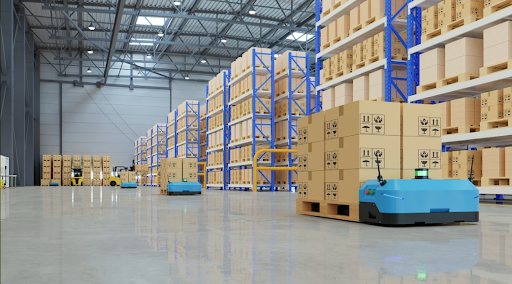Polished Concrete Floors and Pharmacies: Are They Necessary?

Everything looks better when it’s polished, right? Polished concrete has numerous benefits for pharmacies and other pharmaceutical plants and warehouses, mainly because it provides protection from chemicals in industries that require routine drainage. Below, we answer the most commonly asked questions about concrete floor polishing, including what it is and how it’s done.
What is Concrete Polishing?
Have you ever applied furniture polish to your dingy, dusty dining room table? If so, you know just how big a difference polishing can make. This is true several times over when it comes to concrete floors. Concrete floors are naturally porous. This means that without a proper topcoat, they can readily soak up dirt, grime, water, and hazardous chemicals (such as those present in drug spills). After time, this buildup of bacteria can cause concrete to break down and need repair.
Concrete polishing helps combat this. Just like a worn-down dining room table, polish applied to a beat-up concrete floor makes it like new again. Best of all, this comes with major benefits that can extend the life of your floor.
Benefits of Concrete Polishing
There are many benefits of concrete polishing for pharma companies to be aware of. First, concrete polishing, as mentioned above, helps extend the life of your pharmacy floor by offering exceptional durability. In fact, pharmacy floor polishing can extend the life of your floor by a minimum of twenty years.
Furthermore, concrete polishing is easy to clean, resistant to chips and peels, and offers incredible impact resistance. So, why are these benefits important specifically to the pharmaceutical industries? As previously noted, pharma industries are known for drug spills. Not only are these materials harmful to inhale, but they can be a slip and fall hazard for anyone working nearby. On top of this, you want to make sure you clean drug spills up as soon as possible to prevent damage to your floor. Polishing makes this doable since it doesn’t require in-depth cleaning to treat chemical spills or damage. All you need is a dry dust rag and mop to easily get rid of spills without doing further damage to your floor.
Second, pharmaceutical laboratories and factories often use various machinery and equipment. This includes granulators, coaters, chillers, label printing, agitators, and other types of capsule equipment. Because polished concrete floors are resistant to impact, there’s a minimal risk of damage from these machines during operation.
How To Polish Concrete Floors
When it comes to polishing a concrete floor, the first step is to grind down the floor. This is done with heavy-duty machinery, which is why hiring a professional floor installation company is paramount. The floor is ground down until it reaches the desired level of shine and smoothness.
In all, the process shouldn’t take more than two or three days to complete. This means fewer business interruptions for you.
How to Maintain Your Polished Concrete Floor
As mentioned above, maintaining your polished concrete floor is simple, as all you need to do is mop it a few times a month. When cleaning your floor, it’s best to use a pH-neutral cleaner, as these will reduce the risk of damage to your floor’s surface.
As with anything, the more care and attention you give your floor, the nicer it will look.
Do You Need Concrete Polishing?
Because of how durable and impact-resistant it is, concrete polishing is a necessity for pharmacies and other pharmaceutical plants, labs, warehouses, and factories.

